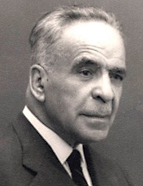

His importance as a scholar also derives from the hundreds of conferences he attended, the books aimed at popularising science but useful for sophisticated audiences. His bibliography is built on the lessons and communications for which, although he was a proficient speaker, he always prepared written texts. This is also why Cidade ’ s work reveals the refinement and clarity demanded by oral exposition, elegantly incorporating quotes and short extracts from writers with little fuss. The requests he sought to fulfil led him to revisit subjects, but always with the aim of improving their presentation and adding new elements.
Now, let us turn to his historiographical works. In the História [History] by Barcelos , we should highlight the pages on “ Portugal in the World War: 1914-1918 ” (VII, pp. 491-522). He begins by describing the European context that preceded the First World War, with a knack for drawing us into the narrative and does not shy away from attributing typical feelings to the nations involved, a trait that we can also see in his literary history essays. He explains how Portugal was unable to stay out of the conflict; he deals with the indecisions over not becoming a belligerent country and, in practice, preparing for war, hinting at our brazenness, the self-interested nature of our participation in the conflict – the expectations of the future peace conference – disorganisation and even cowardice, alternating with references to the disregard we suffered from the British, the Germans and the French. Admittedly, he is less complacent about Portugal than he usually manages to be in articles of a literary or cultural nature. We come to the account of the campaign in Flanders, which has the added feature of having been written by one of its rare Portuguese heroes. Not that this is ever asserted – except in a photograph that includes second lieutenant Cidade as one of the first four decorated officers, certainly inserted by the director – although we can tell from the assurance of the account, and from the few deictics, that the narrator lived through what is being told. However, any memories that might have been there are hidden behind an exposition that is very much accompanied by objective data. This is a feature of Hernâni Cidade ’ s historiographical approaches: there is a sequential narrative thread that manages to incorporate documentary support, more implicitly than explicitly, at the same time as the narrator inculcates an explanation of events.
This work is financed by national funds through FCT - Foundation for Science and Technology, I.P, in the scope of the projects UIDB/04311/2020 and UIDP/04311/2020.
